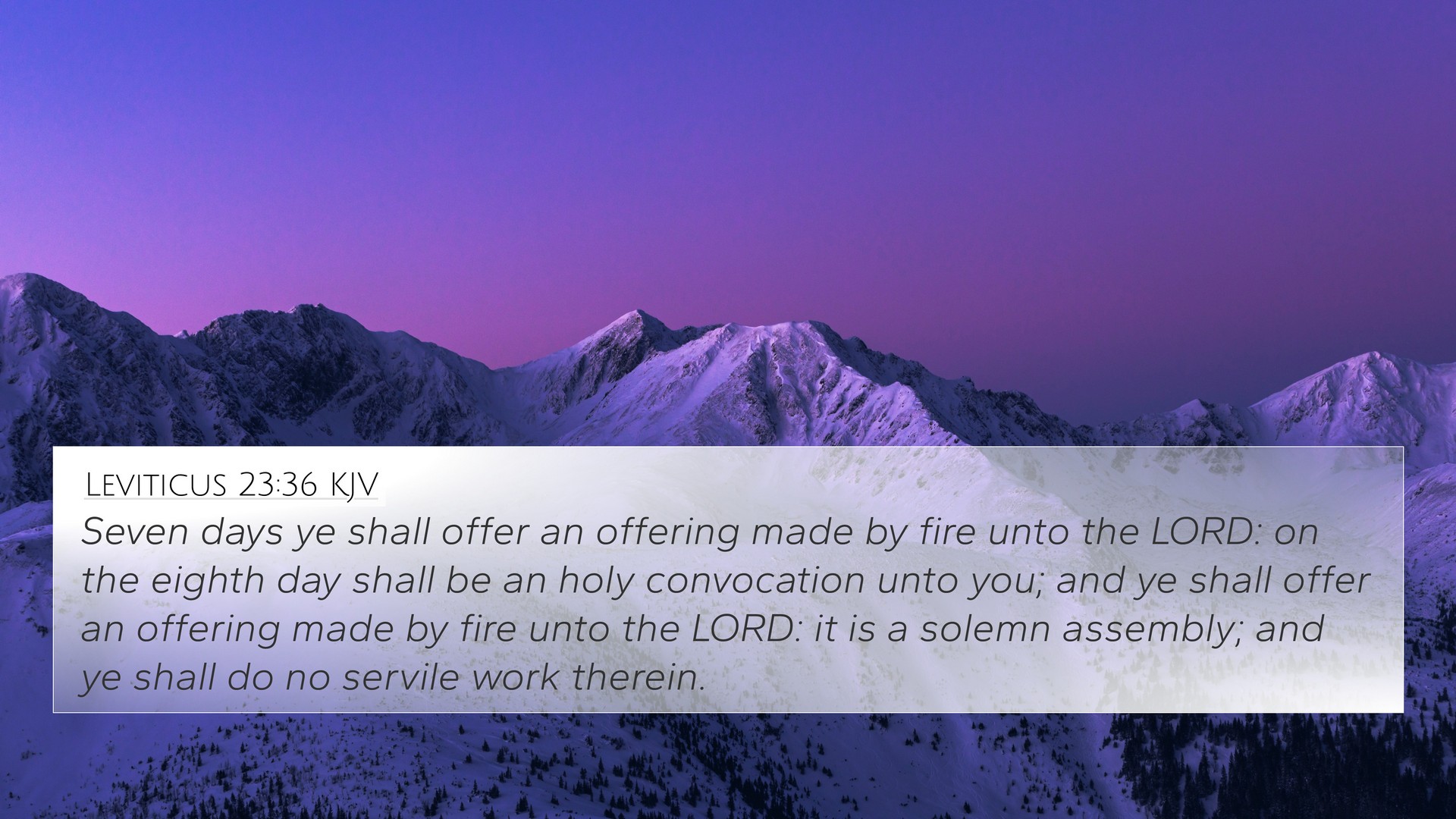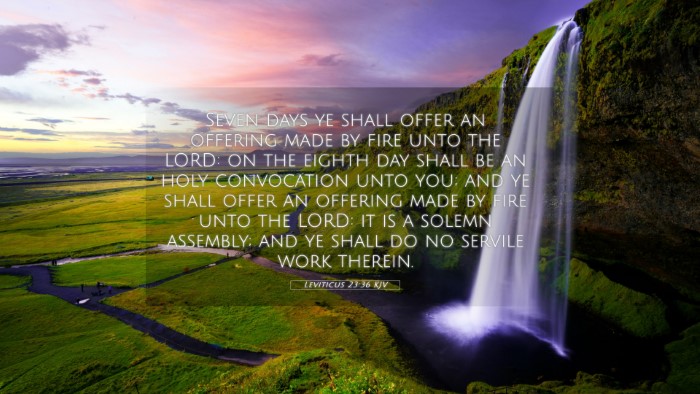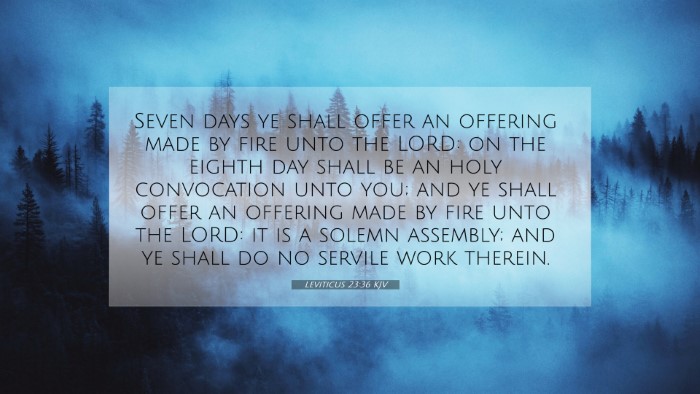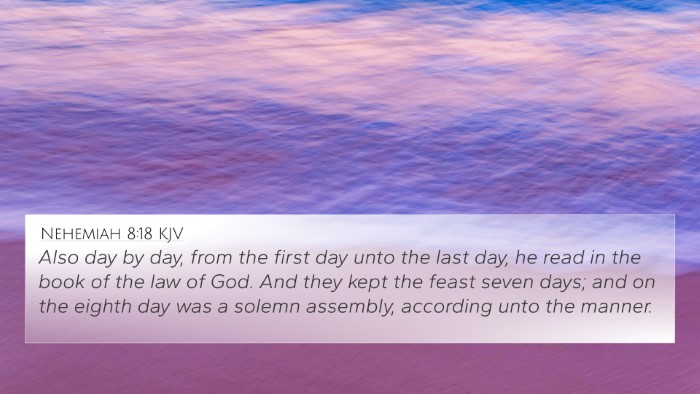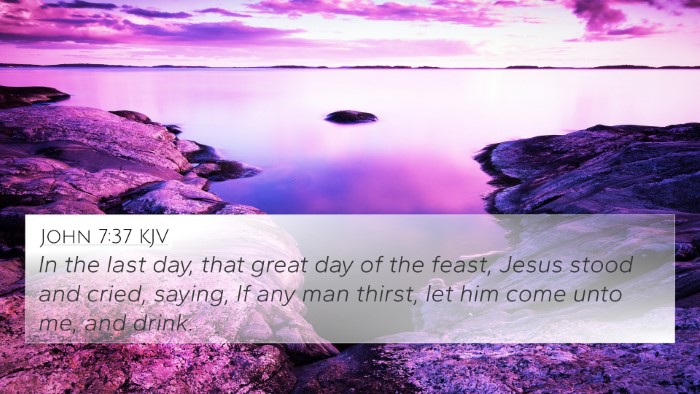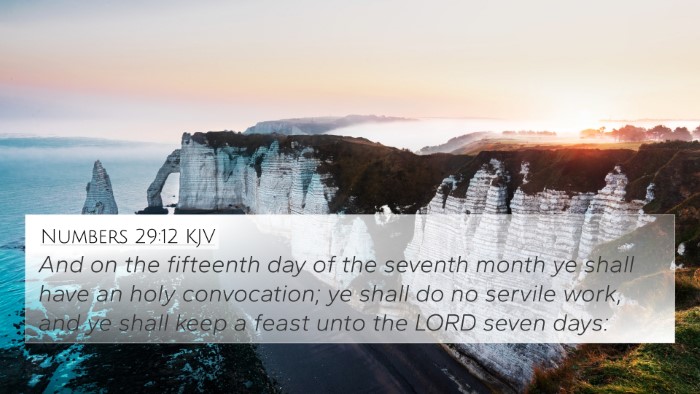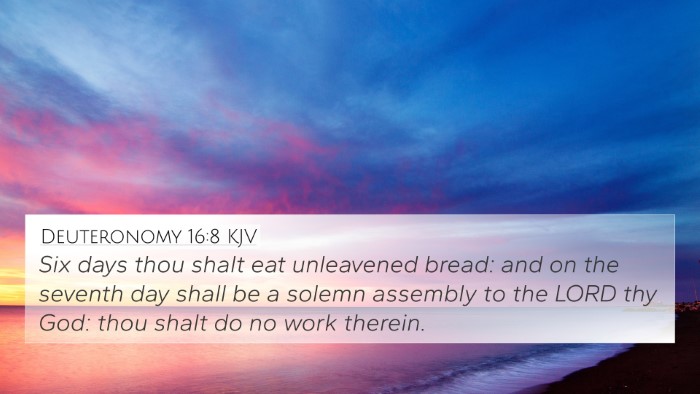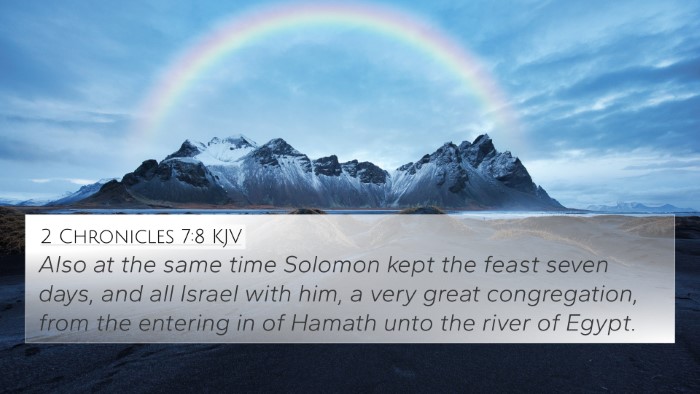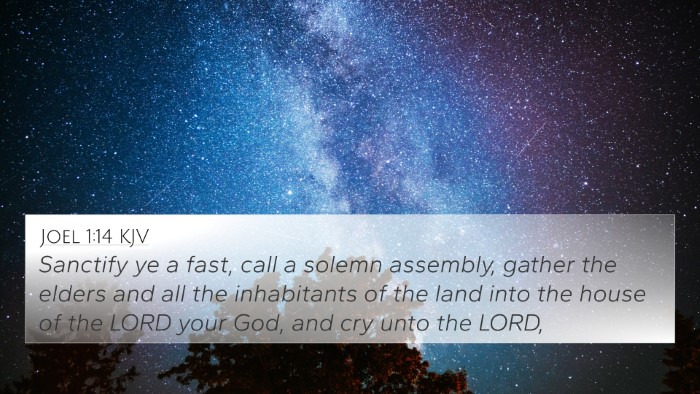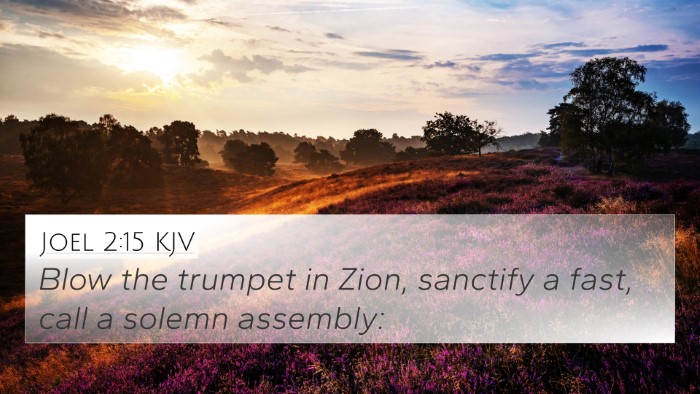Understanding Leviticus 23:36
Bible Verse: Leviticus 23:36 - "Seven days you shall offer an offering made by fire to the Lord. On the eighth day you shall have a holy convocation, and you shall offer an offering made by fire to the Lord. It is a solemn assembly; you shall do no customary work on it."
Overview
Leviticus 23:36 marks an important moment in the Liturgical calendar of Israel, particularly in the context of the Feast of Tabernacles. This verse encapsulates the essence of dedicating time to worship and reflection, emphasizing God's command for a series of offerings and the significance of community gatherings.
Exegesis and Thematic Insights
-
Obligation of Worship:
The command to offer sacrifices for seven days highlights the required dedication and reverence towards God. Commentary from Matthew Henry emphasizes that such offerings signify gratitude for God’s provisions.
-
Importance of the Eighth Day:
The passage uniquely designates the eighth day as a "holy convocation," indicating a time set apart for sacred assembly. Albert Barnes notes that this serves as a closure to the festival and a reinforcing of community worship.
-
Nature of Offerings:
The offerings made by fire represent the excitement and energy of worshiping God. Adam Clarke adds that these fire offerings symbolize both submission and the joyous nature of worship which reflects one's heart towards God.
-
Solemn Assembly:
The description of the gathering as a "solemn assembly" conveys the seriousness of the occasion. It serves as a reminder of the sacredness of community worship instead of it being trivial or casual.
Bible Verse Cross-References
To better understand Leviticus 23:36, here are related scriptures that deepen its meaning:
- Exodus 23:16 - Discusses the Feast of Harvest and Feast of Ingathering, showing the connection with significant agricultural events and worship.
- Deuteronomy 16:13-15 - Encourages the observance of the Feast of Tabernacles with a focus on joy, reiterating the themes of celebration and community.
- 2 Chronicles 7:8-10 - Highlights Solomon’s observance of the feast, connecting the historical practices with the enduring nature of these commands.
- John 7:37-39 - Jesus speaks during the Feast of Tabernacles, fulfilling the symbolism of living water that reflects the completion of the Law.
- Nehemiah 8:14-18 - Underlines the renewal of the celebration of the Feast in the post-exilic period, showing the continuity of the festival’s importance.
- Romans 12:1 - The call to present our bodies as a living sacrifice aligns with the spirit of the offerings commanded in Leviticus, emphasizing holistic devotion.
- Hebrews 10:24-25 - Encourages believers to seek community and assembly, linking the New Testament understanding of gathering for worship.
Connections Between Bible Verses
The connections among these scriptural references reveal a rich tapestry of worship practices throughout the Bible. They illustrate a persistent theme—God’s desire for communal worship and personal devotion, which is exemplified through the repeated commands to sacrifice and gather.
Further Reflections
Adhering to the annual celebrations not just reflects obedience, but also nurtures the spiritual vitality of the community. As noted by Matthew Henry, these traditions cultivate gratitude and remembrance of God’s provision over the year.
Tools for Bible Cross-Referencing
To explore these connections further, utilizing tools such as a Bible concordance or a cross-reference Bible study guide can prove invaluable. Here are some methods:
- Cross-Reference Systems: Many Bibles offer built-in cross-references that highlight connections between verses, allowing for deeper study.
- Bible Chain References: This method connects themes across various texts, which can assist in understanding large biblical concepts.
- Comprehensive Cross-Reference Materials: Consider using a topical Bible that categorizes verses thematically, aiding in thematic Bible verse connections.
Conclusion
In summary, Leviticus 23:36 encapsulates the essence of communal worship, the significance of offering, and the call to a life of gratitude towards God. Each related scripture enriches our understanding of these timeless principles, inviting us into a deeper relationship with God through structured and heartfelt worship.
